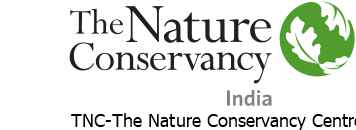Cause Area
Primary Sectors
Secondary Sectors
Financials
-
2021
Total IncomeRs.88,001,280Total ExpensesRs.92,474,402Non Program ExpensesRs.51,781,644Program ExpensesRs.40,692,758Tip: Click on any value above to exclude it. -
2022
Total IncomeRs.97,841,000Total ExpensesRs.90,114,000Non Program ExpensesRs.31,135,000Program ExpensesRs.58,979,000Tip: Click on any value above to exclude it. -
2023
Total IncomeRs.93,723,000Total ExpensesRs.93,949,000Non Program ExpensesRs.26,871,000Program ExpensesRs.67,078,000Tip: Click on any value above to exclude it.
Geographies Served
Programs
-
Programme to Provide Food & Water Sustainably
TNC aims to ensure sustainable food and water sources amid growing global demand, collaborating with farmers and land managers to enhance land and water stewardship. By prioritizing environmentally beneficial practices that preserve soil fertility, it strives for sustainable food production while minimizing adverse environmental effects and fostering economic growth. Its goal is to secure accessible, healthy food and clean water for India's population without compromising the natural environment.
-
Programme to Protect & Restore Wild Habitats
District
Kabirdham
States
Chhattisgarh
TNC prioritizes safeguarding and reviving India's natural habitats, currently protected on just 5% of its land. It actively prevents deforestation, restores degraded areas, and promotes agroforestry to alleviate pressure on pristine forests. Through innovative finance and collaborations, it secures large protection deals, advocates sustainable development, and empowers Indigenous communities as environmental stewards. The Central Highlands Restoration Project (CHiRP), launched in 2019 and backed by the IKEA Foundation, aims to restore 2,000 hectares by 2025. It integrates science-based solutions, supporting 1,000 smallholder families while creating markets for sustainable products, thus nurturing local livelihoods and ecological balance.
-
Programme to Build Healthy Cities
District
Chennai
States
Tamil Nadu
TNC is addressing the pressing needs of India's burgeoning urban population, set to surpass China's, reaching 1.6 billion by 2027. As cities swell, issues like air pollution, water accessibility, flood management, and heat island effects become increasingly critical for livability. Focusing efforts in Chennai, Tamil Nadu, it aims to preserve the remaining natural wetlands by restoring Sembakkam Lake, part of the Pallikaranai wetland system. Through initiatives like planting trees and implementing green infrastructure, it showcases how urban challenges such as stormwater runoff, air pollution, and heat islands can be mitigated, demonstrating sustainable solutions for city resilience.
-
Programme to Support Renewable Energy
District
Kapurthala
Fatehgarh Sahib
Patiala
Ludhiana
Ambala
Kurukshetra
Karnal
States
Haryana
Punjab
TNC actively promotes renewable energy adoption while combating climate change by advocating for sustainable sources like wind and solar power. Its focus in India involves deploying renewable energy projects without disturbing high conservation areas and emphasizing natural climate solutions such as reforestation. Collaborating with farmers in northwest India, it works to halt crop residue burning, averting significant greenhouse gas emissions. Key initiatives like SiteRight aid in identifying suitable areas for solar and wind development, and minimizing conflicts, while HARIT supports ending burning practices and promoting Happy Seeder adoption among farmers in Haryana and Punjab. Through awareness programmes and capacity building, it spreads sustainable farming practices, using model villages to inspire broader adoption in farming communities.
Registration Details
-
Registration Number
U74999DL2017NPL319416
-
CSR Form 1
Not Available
-
FCRA
Not Available
About
-
Headquarters
New Delhi, Delhi
-
Since
2017
Impact
TNC impacts conservation in over 80 countries and territories, operates more than 100 marine conservation projects, has over 1,000 scientists on staff, and has protected more than 125 million acres of land globally.
Vision and Mission
TNC's mission is to conserve the lands and waters on which all life depends. Their vision is a world where the diversity of life thrives, and people act to conserve nature for its own sake and its ability to fulfill our needs and enrich our lives.
Political & Religious Declarations
-
Political Affiliation
-
Religious Affiliation
Location
-
Offices in Cities
Other Details
-
Type
Non-profit
-
Sub Type
Section 8 (formerly Section 25)
Website
Technology Adoption
-
SOC 2 Compliant
No
-
Financial Management
-
Beneficiary Management

